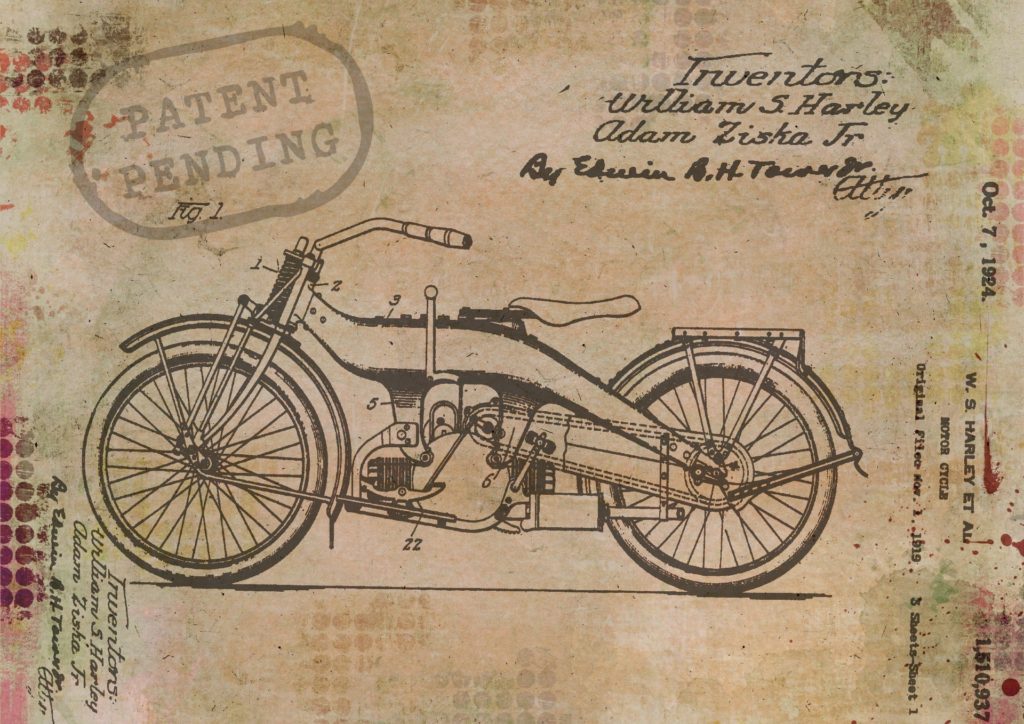Two of My Best Friends Took Our Business Idea and Filed a Patent On It
There’s one school project I’ll never forget. What made it so memorable wasn’t the dozens of hours and long nights I put into the project. Or the nerve-wracking presentation I gave at the end of the term. Or even the fact that I had to fire one of my classmates from his role because he stopped showing up to meetings.
Nope, the project is cemented in my mind because two of my best friends took the business idea we had been working on for months, and they filed a patent on it, behind everyone’s backs.
It happened 10 years ago. I was studying for my MBA, and our class was subdivided into groups of ten students, each tasked with building a new business venture from scratch. During the course of one year, we had to invent a business idea, conduct market research, run financial projections, create a prototype, and pitch the idea to angel investors and venture capitalists at the end of the year.
Because our team knew we’d all be working together for the remainder of the year, we all invested a lot of time in the initial weeks to get to know each other: movies, dinners, coffee shop meetups, study parties, the whole deal. After a month or two of spending so much time together, I had bonded really closely with my colleagues. They became my best friends.
We worked on our business idea for the entire school year. Then, weeks before the final presentation, I stayed after class one day to ask our professor a question, and he let it slip that two of my peers were waiting to hear back on the patent they had filed.
“Umm….excuse me?” I asked. “What do you mean?”
“Yeah, they filed for a patent. Hopefully, they’ll hear back soon. If they get the patent, that would definitely give your team an edge in the end-of-year pitch in a few weeks.”
I can’t think of many times in my life when I’ve been more surprised than I was at that moment.
This was the first I heard anything about this patent. It would be one thing if a random work colleague had pulled this type of thing, but these were my friends. We had pulled late nights at the 24-hour donut shop, shared tater tots and happy hour beers at the local steakhouse, and geeked out over becoming business moguls someday when our company was famous.
In one crashing moment, I questioned the depth of my friendships, questioned my naivety, and questioned my intelligence. How in the hell did this happen?
I’ve now had 10 years to look back on that moment. For a long time afterward, I was pissed off. I couldn’t believe my friends had done that to me. And I couldn’t believe I had let that happen.
Now, I’ve finally reached a point where I can look back on that moment with more self-reflection, grace, and curiosity. (It took me a long time, but at least I got there, okay?)
That experience taught me these six lessons I will never forget.
1. Nothing is ever just a “side project”
While I was working on that business venture, I viewed the whole thing as a school project. My mind was more preoccupied with earning a grade at the end of term than with earning real dollars from consumers out in the marketplace.
And because of that, I wasn’t in the right headspace to actually think like a business owner. I wasn’t thinking about things like setting up our company ownership or determining who owned which parts of the idea.
That was a mistake.
Nothing is ever just a “side project.” As soon as you start working with someone to create a legitimate business idea, you need to flip the switch from school mentality to the real world. And I failed to flip that switch.
2. Start with the end in mind
Similarly, I was only focused on what was immediately in front of me: each next step of our “project.” My myopia kept me from thinking about what could happen if we actually built a successful product.
I learned that when you launch any venture, you should ask yourself these questions: What does success look like for us? If this idea really takes off, what will that mean for our friendship? What do we need to decide now (e.g., equity ownership, roles/titles of each person in the company, exit strategy) that will set us up for future success?
Start with the end in mind. Don’t lay the first brick without considering what you’re trying to build. If I had done that, I wouldn’t have left myself open to anyone taking the idea and running with it because we would have already collectively worked out those details.
3. Tough conversations only get tougher with time
The thought did flutter through my mind early in the project that we should probably decide how we wanted to run the business and who owned what. I quickly brushed the thought aside because it sounded like an uncomfortable conversation. “And heck,” I thought, “this stuff probably won’t matter in the end anyway. It’s just a school project.”
The problem is that the conversation you postpone today will become infinitely tougher tomorrow. Time is no friend of tough conversations.
At the start of the semester, it would have been easy for me to say, “Hey everyone, what if this idea is a wild success? What does that mean for us? How much do each of us own this concept based upon the work we’re putting in?”
But after the patent had been filed, the easy ship had long since left the shore. When I talked to my friends about the situation after they had taken their fateful step, the conversation was loaded with emotion, strong opinions, and legal red tape.
4. No one seems themselves as the villain of the story
In that difficult conversation with my friends, they said they thought the idea was theirs. After all, one of them came up with the original idea and the other was responsible for our product design and prototyping. So they had a legitimate claim to much of what we had been working on as a team.
The rest of us on the team were shocked that we had been cut out of the deal because we had put in countless late nights refining the original rough idea, coming up with ways to make the product work, and a million other little things. The way we saw it, the idea and the product were the property of our collective brains — not any individual.
In situations like this, each person is focused on their piece of the puzzle — the unique value they have added to the team. We’re each the hero of our own story. So even if you feel like someone else has screwed you over, it’s likely that they don’t see themselves as the villain in the story. They’ve been viewing everything through their own lens, and that’s a natural thing to do.
5. Business and personal are an interesting mix
Some people would advise you to never mix business and personal. I disagree. I think there are plenty of reasons to go into business with someone you know. But I also know that I’ll tread more carefully the next time I find myself in a situation where money is on the line with a close friend.
Money has a way of turning heads and twisting priorities. It changes the dynamic of any relationship. You need to be prepared for that.
Have an open conversation about the risks that threaten your relationship if things go well — or poorly. Both smashing success and crushing failure can dynamically alter a relationship.
6. Many things are more important than money
Ultimately, I had to decide whether to make a big stink about the whole situation. I could go to the school board to talk about the situation, à la the Winklevoss twins versus Zuckerberg. I could impugn my friends’ reputation at the school. I could lawyer up. I could never talk to those friends again.
But ultimately, I decided not to any of those things. Sure, I got upset. I felt betrayed. I licked my wounds for a while. But then I decided that there are a lot of things in life more important than the potential money or success that could come from that patent and business venture.
And in the grand scheme of things, it didn’t matter. The idea fizzled out.
Who knows…my friends could do something with the idea someday, and if they do, I wish them the best. But regardless of what happens, I learned a lot of valuable lessons from the experience, and I won’t repeat those same mistakes the next time. And thanks to this story, I hope you won’t either.




